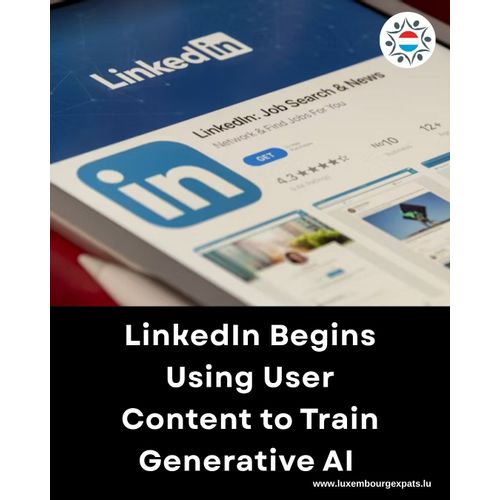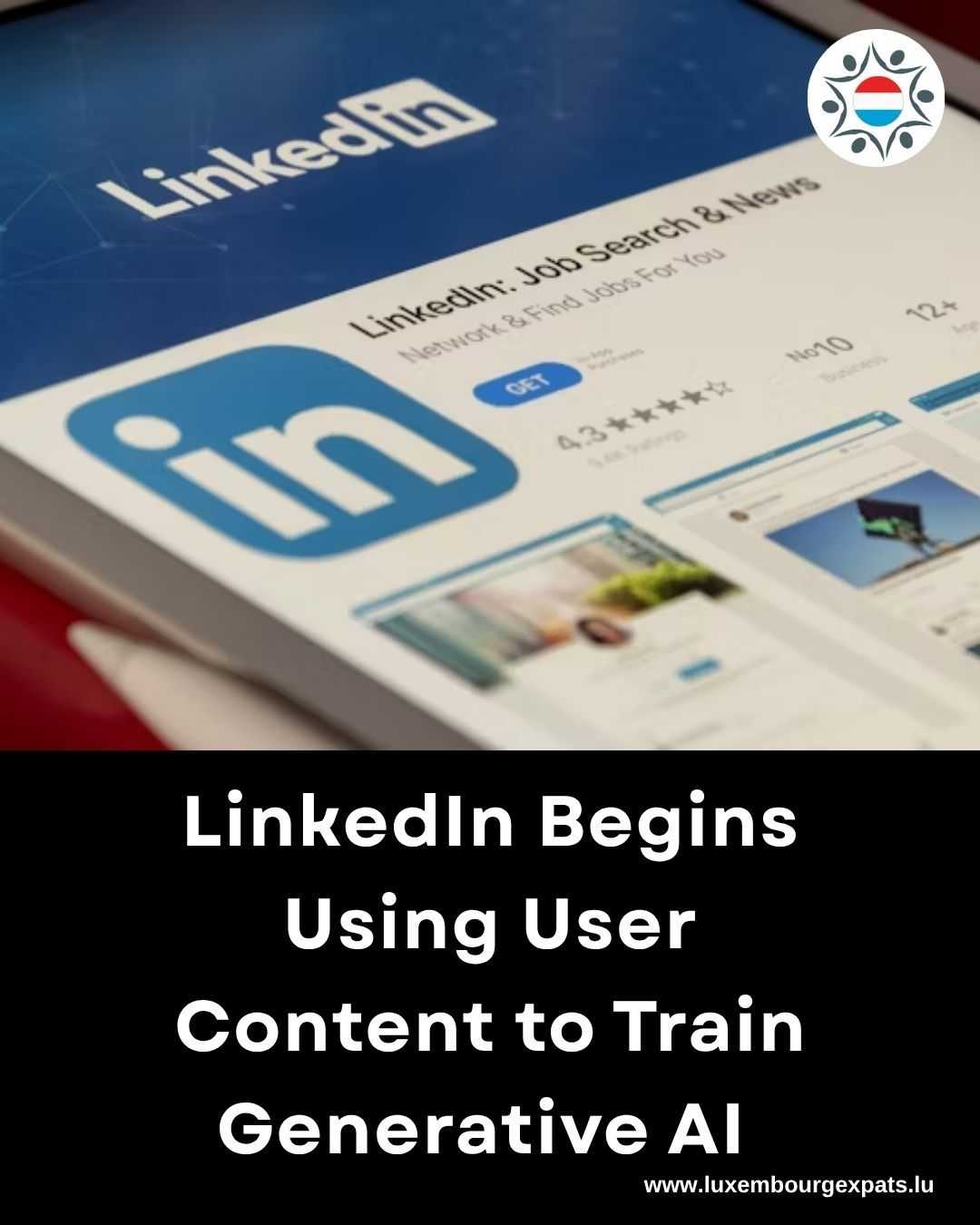LinkedIn Begins Using User Content to Train Generative AI — What It Means for You
LuxembourgPosted on 04 November 2025 by Team · 3 min readLinkedIn, the world’s largest professional networking platform owned by Microsoft, has officially begun using public user data to train generative artificial intelligence (AI) systems. Starting November 3, the company confirmed that it will collect and process certain publicly visible information — including profile details, posts, articles, comments, and CVs uploaded during job applications — as part of efforts to “power generative AI models” and improve its AI-driven features.
This change, explained in a recent LinkedIn blog post, represents the platform’s next step in integrating AI across its ecosystem, from job recommendations and content generation to personalized learning tools. The company emphasized that this new policy applies to public data only, assuring users that private messages, salary information, and confidential content will not be used in AI training.
Acquired by Microsoft in 2016, LinkedIn leverages AI technology through Azure OpenAI Services, the same infrastructure that supports Microsoft’s broader AI ecosystem. By using generative AI models, LinkedIn aims to enhance its professional tools, automate recommendations, and create more engaging and relevant experiences for users.
Users Can Opt Out
Importantly, LinkedIn has made it clear that users have the option to disable this data usage. Account holders can do so through the data privacy settings section of their profile, choosing to prevent their public information from being used in AI training. The company also confirmed that minors’ data will not be used, even if their account settings appear to allow it.
This update, which first rolled out in the United States, is now expanding to the European Union, United Kingdom, Switzerland, Canada, and Hong Kong.
A Growing Trend Among Tech Giants
LinkedIn’s announcement follows a broader trend in the tech industry, where major platforms are integrating generative AI into their services. In May 2025, Meta (the parent company of Facebook and Instagram) began using publicly shared posts, captions, and photos from users to train its AI systems — unless individuals explicitly filled out an opt-out form.
These practices have sparked an ongoing debate over data privacy, consent, and transparency in AI training. While companies like LinkedIn argue that using public data helps improve AI accuracy and functionality, privacy advocates continue to call for clearer user control and stronger data protection regulations.
A Balancing Act Between Innovation and Privacy
As LinkedIn moves forward with its AI strategy, the company insists that it remains committed to protecting user privacy while advancing innovation. “Generative AI has the potential to transform how professionals connect, learn, and grow,” the company stated, emphasizing that the use of AI must be done “responsibly and transparently.”
For now, users who want to maintain complete control over their data are encouraged to review their privacy settings and make sure their preferences reflect their comfort level with AI data usage.
In the age of intelligent systems and digital transformation, LinkedIn’s move underscores a broader shift in how our professional content is shaping the AI of tomorrow — whether we’re ready or not.
Read More : LinkedIn utilise vos données pour entraîner l'IA générative à partir du 3 novembre - L'essentiel
Join the community of your own - #1 home-grown LuxExpats app
SignUp Free : luxembourgexpats.lu
I am your contact
Team
Chat








